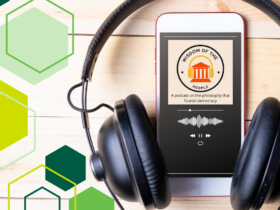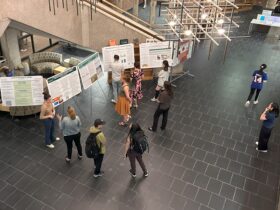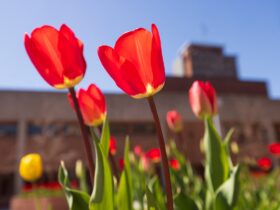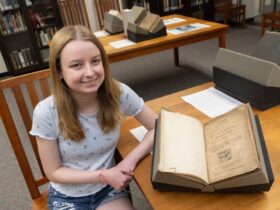“I don’t really have a strong relationship with technology!” was one of the first things Zunaira Yousaf said to me when we sat down to talk about her digital project Re-migration of Pakistani Diaspora from New York City to Broome County, NY. Despite the learning curve and technological lumps she encountered, Yousaf strongly felt that it was worth it in order to make her work as accessible and visible as possible.

The project is a digital collection centered around Pakistani migrants’ experiences migrating to New York City and then again to Broome County between 2020 and 2022 during the COVID-19 pandemic. By creating a website that houses the collection, Yousaf’s project aims to create a space where these often invisible stories can be found and shared. Through images and interviews, the collection highlights the experiences of Pakistani migrants that are currently not well represented in current physical and digital archives. Yousaf hopes that filling in the missing gaps from other digital and community archives will not only make community members’ experiences more visible but will also help push back against the rising racial injustices storytellers are facing.
Yousaf soon learned that not everyone wants to, or sees the importance of, sharing their experiences. Of the 20 or so people asked to participate, the three interviewees featured in the project were the only ones who were willing to have their stories published. For many, being asked to tell their story was a new experience and they wondered why Yousaf wanted to tell their story in particular or why their personal experience would be valuable to share. For others, having their story placed on a public platform was an issue of security and privacy. Yousaf received many “Nos” from the community who were reluctant to share their stories publicly for fear of retaliation. Yousaf hopes that while community members may be wary now, the more people share their stories the more she can empower others to do the same.
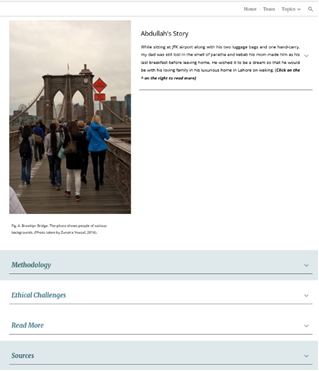
The balancing act of telling stories and making them public and protecting the storytellers is delicate. For Yousaf, it is worth it when the storytellers realize the impact of sharing and telling their stories online and to each other. These stories become more than just stories added to the collection. They become openings for the interviewees’ families to learn more about each other and themselves. One family member was able to gain a different perspective on migration from hearing their parent talk about their personal experiences saying “we learned this stuff in school, but I didn’t hear it from dad.” Like other community archives, the collection of stories from Pakistani migrants in Broome County documents what other archives and collections are missing, filling in gaps not only in the archive but in the community as well. Gaps of belonging and family history.
At the Digital Scholarship showcase, this past fall Yousaf showcased her project scrolling through the stories and talking about the larger goals of sharing these overlooked histories and stories. At the event, Yousaf reiterated the importance of the project and expressed hope that more people were willing to share their stories and experiences with her after seeing the outcomes from the previous round of stories. Despite the challenges involved, whether it’s from gathering information or technological struggles, the importance of the project is the motivation to continue. The Pakistani experience in Binghamton is a largely unheard voice in the community, so this project continues in hopes of spreading awareness, understanding and compassion through each storyteller’s lens.
Future work on the project includes making maps that detail and show a little bit more about the interviewees’ lives and movements and to create a better webpage for the stories to live on. There are plans to create a separate home for the project and its webpage. If you are an American of Pakistani origin and have a story to share, please contact Zunaira Yousaf at zyousaf1@binghmton.edu.
Yousaf would like to extend her thanks to Dr. Lisa Yun for all the support on the project as well as Binghamton University Libraries for the opportunity and platform to showcase Re-migration of Pakistani Diaspora from New York City to Broome County, NY.
Yousaf’s project is part of a larger collection of Digital Storytelling works compiled by Dr. Lisa Yun’s students, graduates, and undergraduates, under the title Humanities for Justice: Humanities Methods for Justice in the Digital Age. Humanities for Justice is a resource collection showcasing various digital modes of bringing attention and voice to marginalized communities through engaged critical research.
This blog is part of a new series that Binghamton Libraries is trying out where we feature digital projects done by faculty, staff, and students on Binghamton’s Campus. If you have a digital project that you would like featured in the blog please reach out to the Digital Scholarship Team in the library at dscenter@binghamton.edu. Projects at any stage of completion are welcome!



